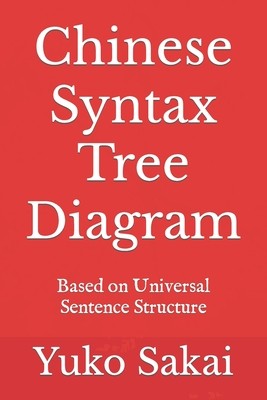
- We will send in 10–14 business days.
- Author: Yuko Sakai
- Publisher: INDEPENDENTLY PUBLISHED
- ISBN-10: 179207137X
- ISBN-13: 9781792071379
- Format: 15.2 x 22.9 x 0.7 cm, softcover
- Language: English
- SAVE -10% with code: EXTRA
Reviews
Description
Some people say that Chinese does not have grammar, as a Chinese word may be a noun, a verb, an adjective or an adverb in many cases without conjugation, inflection, derivation nor even the preposition. However, Chinese syntax has many similarities with English as an isolating language, whose word order is more obligatory than inflected or agglutinative languages. Moreover, because of the ideograph, which expresses a morpheme indifferent of the parts of speech, the word order is stricter than English. Chinese words are fundamentally monosyllabic, the same as English original words such as "head", "arm", "go", "come". Being monosyllabic, the verb may combine easily and even a short sentence may be more complex than in English. In this work, we try to verify the hypothesis that though the grammar varies, every human language is based on the universal sentence structure restricted by the space-time cognition.
- Author: Yuko Sakai
- Publisher: INDEPENDENTLY PUBLISHED
- ISBN-10: 179207137X
- ISBN-13: 9781792071379
- Format: 15.2 x 22.9 x 0.7 cm, softcover
- Language: English English
Some people say that Chinese does not have grammar, as a Chinese word may be a noun, a verb, an adjective or an adverb in many cases without conjugation, inflection, derivation nor even the preposition. However, Chinese syntax has many similarities with English as an isolating language, whose word order is more obligatory than inflected or agglutinative languages. Moreover, because of the ideograph, which expresses a morpheme indifferent of the parts of speech, the word order is stricter than English. Chinese words are fundamentally monosyllabic, the same as English original words such as "head", "arm", "go", "come". Being monosyllabic, the verb may combine easily and even a short sentence may be more complex than in English. In this work, we try to verify the hypothesis that though the grammar varies, every human language is based on the universal sentence structure restricted by the space-time cognition.


Reviews